More on News
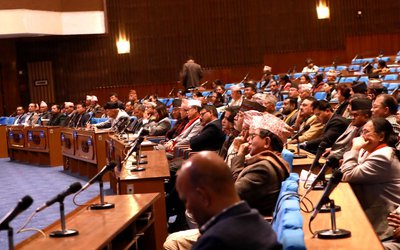
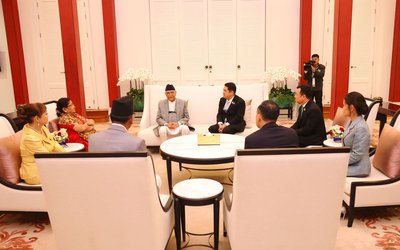
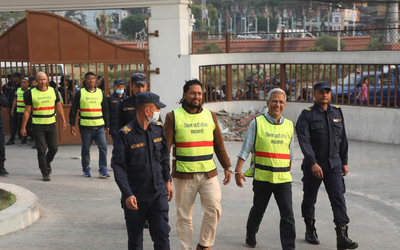
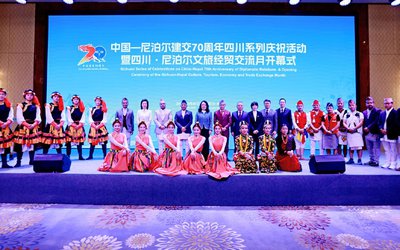
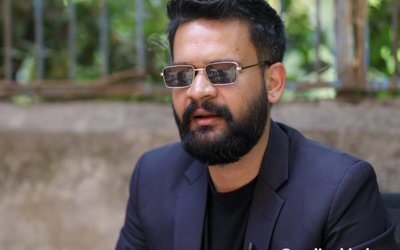
That view just about sums up India’s current thinking about the Nepali Congress (NC), an incredible turnaround-of-sorts, considering the fraternal relations between it and the Indian National Congress are as old and as intense as the bond between Jawaharlal Nehru and one of modern Nepal’s founding fathers, B P Koirala.
Conversations with a wide variety of political players in Kathmandu last week reveals the NC is so deeply divided between Sushil Koirala, party president and a nephew of B P Koirala, and his bitter opponent and three-time prime minister, Sher Bahadur Deuba, that the Maoists continue to hold the upper hand.
Though Maoist leader Baburam Bhattarai was prime minister when the Constituent Assembly was dissolved on May 27 because, even after four years, it had not been able to write a Constitution for the country, little of the opprobrium falls upon the party. Instead, it speaks volumes about the utter disarray inside the NC — and supporting parties like the left-of-centre CPN-UML — that they cannot even pin the political blame on the Maoists for the current constitutional and legal mess Nepal finds itself in.
Ties with the Congress party in Delhi are so frail — and the fact that the head of Sonia Gandhi’s foreign affairs cell, Karan Singh, is a former maharaja, is only one reason for the tenuous linkages — that Nepali Congressmen have preferred to establish personal relationships with old-timers like Pranab Mukherjee and Janardan Dwivedi. The first is now likely to move to Rashtrapati Bhavan, where his impressive clout with the neighbourhood would perforce be curtailed. The second is fully embroiled in the hurly-burly of domestic politics. Certainly, the power lies elsewhere, in Prime Minister Manmohan Singh’s office.
If this forces the NC to look inwards and ask itself why it has lost the goodwill of people, it might be a good thing. The answers are not hard to find. The NC has simply not been able to form alliances with the people of the plains — or the Madhes, as the region is called, literally, “middle ground” — who maintain significant cultural, linguistic and ritual similarities with the people of Bihar and Uttar Pradesh.
On the other hand, the Maoists were savvy enough to reach out to the several Madhesi political groupings and reach tactical alliances with them. In the outgoing, 601-seat Constituent Assembly, the Maoists held 239 seats while all the Madhesi parties put together held 74 seats. In contrast, the NC held 119 and the allied CPN-UML 109.
Ram Paltan, an NC worker from Janakpur, a town near the border with Bihar, told Business Standard sorrowfully: “The truth is that the Nepali Congress has become only a party of the Brahman-Kshatriyas, they don’t accept people like us from the Madhes.”
The NC war cry, on the other hand, is focused on the “treachery” of Baburam Bhattarai, who, they say, refused to honour his word and make way for a Congress prime minister. Unless Bhattarai resigns, their leaders say, they will not discuss any proposal for a government of national unity with him. Bhattarai says he is still ready to hand over the baton, but on the condition that the NC promises to help complete the writing of the Constitution. He accuses them of blocking the attempt to do so for the last four years. No wonder the ‘Khukhris’ are drawn on all sides.
Behind the Pashupatinath temple, one of the holiest pilgrimage spots for Hindus worldwide, the Bagmati river flows sluggishly, in imagined despair with Nepal’s ongoing fractious politics. The country’s warring parties had united to overthrow the monarchy in 2006, but in hindsight that seems to have been the far easier thing to do.
Pro-monarchists are said to be making a comeback. A united rally of the NC and the CPN-UML parties a fortnight earlier is said to have attracted less people than the one held by pro-royalist politician Kamal Thapa.
As Kathmandu swelters in an unusual heat wave, and power cuts climb to eight to 10 hours daily, comments about the “good, old days” are increasingly common. The government’s inability to exploit its enormous hydropower potential, as much as 80,000 Mw annually, stems primarily from the political vacuum. Last week, it announced it would push hydropower agreements with a variety of foreign producers. India’s GMR and the public sector SJVN, who have long shown interest in building dams on the Arun-3 and Upper Karnali rivers, respectively, are invited back to Kathmandu.
That should have caused the champagne to pop. Instead, restraint has been a preferred response. Bhattarai is keenly aware that foreign investment will help stabilise the economic situation at home, even as these companies wonder whether their potential investments will be safe in a politically divided Nepal.
As the Himalayan republic lurches from crisis to crisis, Delhi wonders when its northern neighbour will become a more restful place. Unfortunately, the answers seem out of reach.







